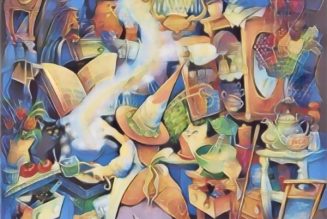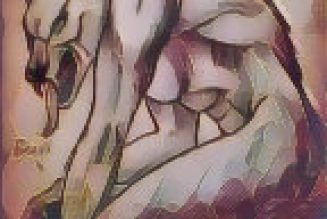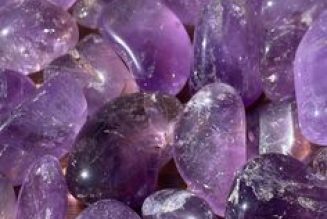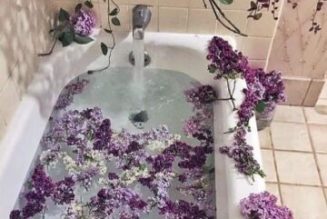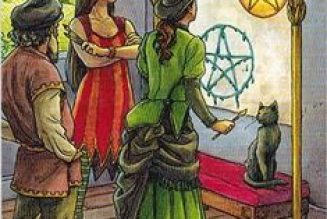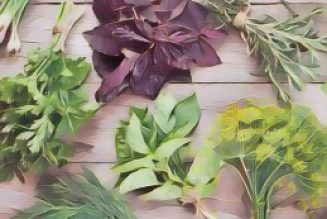Anxiety is a normal response to a stressful situation. It is an emotion that we all experience at some point. It keeps us alert and ready for action as a survival mechanism, allowing us to react quickly to life-threatening situations. In short, a marvellous medley of hormonal changes and physiological responses serve to help us to either fight off threats or run like the wind to escape from them. In ancient times fight or flight might happen after being chased by a lion or bear… however, as society has changed, traffic jams, constant fast-paced stimuli, family challenges, work deadlines and pressures of responsibilities have become the new trigger for fight or flight. What actually happens in the body? When your system feels that it is in danger, it immediately sends a distress signal to the hypothalamus. The hypothalamus then rapidly delivers a message to the adrenal glands. The adrenals then flood adrenaline (also known as epinephrine) into the body, activating a number of physiological effects. Physiological symptoms may include an increase in blood pressure, increased heart rate, rapid breathing and hyperstimulation of sight and sound. If the body continues to see the situation as a threat, cortisol levels will then begin to elevate, keeping the body in a hyper state of alert. This may then lead to an inability to concentrate, irritability, insomnia, panic attacks, digestion problems, sweating and social anxiety. If it is persistent or prolonged then it can wreak havoc on the body. This is when we might benefit from using herbs and supplements to help us find a state of balance and equilibrium. Fight or flight is a normal human response to scary stuff A massive change in a life situation like the death of a loved one, divorce, loss of a job or challenging news can cause anxiety. Aggressive behaviour towards us can also induce anxiety. Feeling anxious is a normal human emotion and usually, it is an understandable response to challenging situations, it shows that you are connected with your emotions. Anxiety might involve panic or sudden intense fear after activation of specific triggers (logical or not) – which may even induce shaking, confusion, dizziness, breathing difficulty or nausea. In these cases (whether mild or extreme), herbs and other calming techniques can be beneficial. When fight or flight goes into overdrive Some people are more sensitive to stimuli than others, which can lead to ongoing or recurring patterns of anxiety. This can become problematic when it disturbs a person’s daily life. Personally speaking, I’ve always been a sensitive person, prone to going into fight or flight mode as a result of the overwhelm of external stimuli. Not so long ago I also encountered an intensely challenging situation in my life that sent me into months of anxiety, leaving me in a continual state of fight or flight mode. When I was fortunate to calm down enough to go to sleep at all, I’d wake up only to find my cortisol levels shoot through the roof within 15 minutes of waking. This inspired me to write this article… since the levels of anxiety left me unable to function at times, I wanted to reach out to others who are experiencing various degrees of anxiety. I’ve since learned that it is incredibly common for people to experience anxiety issues, yet less common for people to have found supportive methods for it. Thankfully, however, there are most definitely things we can do to help ourselves during these times. If you are close to someone who is suffering from anxiety, then there are also many ways that I am sure they would appreciate your support. It’s helpful to empathise with their situation. Telling them to snap out of it, calm down or get a grip of themselves, is just going to make it worse. What helps more than anything is a kind loving presence. This article is all about different herbs that can help balance the system for someone suffering from anxiety. Bear in mind that different herbs will work better for different people. Some herbs will create a state of balance throughout the whole system, to enable you to cope. Others will induce a rapid state of calm (and even drowsiness). There are different herbs for different occasions. I’ve found that a combination often works wonders. Immediate non-herbal techniques that help induce calm Even though this article will address herbs and supplements, it is important to know that there are immediate things that we can do to help induce a state of calm, whilst decreasing the fight or flight hormones. These things include deep belly breathing; thinking of soothing things; visualising relaxing scenes; gentle movement; taking a brisk walk; connecting with friends who care; meditation; yoga and tai chi. Be sure to find a practice that helps you find calmness and use it in conjunction with herbs.
Seven Healing Herbs For Anxiety & Stress
Ashwagandha
Ashwagandha is one of the most supportive and gentle herb remedies for the nerves. It is an adaptogenic herb, meaning that it helps our body to find balance during mental, emotional and physical stress. Ashwagandha is known to help alleviate depression as well as anxiety. Typically from India, this herb has recently become one of my all-time favourites. It acts as a core support to the entire nervous system helping with sleep, relaxation, nerve and body pain, stress, and mood. It’s a gentle, yet strong, nourishing tonic that acts as a foundational support to the entire nervous system. For best results, it should be used consistently. I take it in the form of a tincture, to allow rapid infusion into my system. It’s also available in capsule, whole root or powdered root form. One of the benefits of ashwagandha is that there are no or minimal unwanted side effects when taking it, unlike anti-anxiety medications. Ashwaganda study:
Rhodiola
Many people find rhodiola to be an excellent anti-anxiety herb. It is also good for depression. One of the wonderful things about this herb is that like ashwagandha, it does not make you feel drowsy. It is an adaptogenic herb helping our system find equilibrium during whatever life should throw at us. Rhodiola reduces the fight or flight hormone cortisol in the body, whilst stimulating dopamine and serotonin (the feel-good hormones). The dosage of rhodiola is important… because it can also induce stamina and help with energy levels (which may or may not be desired), so be sure to follow recommended instructions and don’t over-do. Powerful in the correct amount.
Skullcap
This awesome herb became one of my favourite herbs during the height of my challenges. It is well known amongst Native American tribes as a woman’s herb, although it is beneficial for us all. It can normalise the nervous system and help induce a state of peace and calm. Skullcap helps to balance our thoughts to help us create the inner-space so that we stop reacting to triggers and find more helpful ways to deal with challenging situations. This is a gentle herb that has sedative properties (mild or strong depending on how much we take). It can help us sleep, rest and unwind and is especially beneficial if taken in the evening before bed. I’ve read that (unlike pharmaceutical drugs) skullcap can help restore optimal function of the nerve cells – making it especially beneficial if your nerves are all over the place. I sometimes enjoy a little amount of this herb in the evenings if I need a extra help to find peace and calm. I tend to take just enough (half a teaspoon of the dried herb) to allow gentle relaxation rather full on sleep-induction. I make it up as a tea infusion, blending it with passionflower and lemon balm for complementary effects.
Kava Kava
Kava Kava works by stimulating dopamine receptors and gently inducing euphoria. It’s somewhat like benefiting from that relaxed feeling you get with a glass of wine, yet staying alert at the same time (and with none of the side-effects of alcohol). Kava is typically used to deal with anxiety, improve mood, help with sleep and increase confidence in social situations. Various studies show clear anti-anxiety benefits in many people who take kava kava. A study by the University of Melbourne for example showed a significant reduction in anxiety by participants who took kava compared to those who took a placebo. Kava can be taken in the form of tea (ground kava or tea bags), tincture or capsules. Personally speaking, I’ve found kava to be very helpful to me over the years, during anxious situations. It’s can be wonderful at helping find a place of peace when having to confront, unavoidable challenging situations, where you know you’ll be in a state of fight or flight.
Valarian
Valarian works well for most people if you need to seriously quieten the central nervous system and gently sedate yourself. It will induce a deep and restful sleep for 95% of people (5% of people, for some reason, will however, experience the opposite effect). Valarian was the plant inspiration for the synthetic valium drug; although taking the whole plant allows for a natural ‘whole-plant’ experience without the side effects and dependency that you might find from valium. I personally benefited from this in tea during the height of some inconsolable grief that I experienced. It helped me to finally find a place of peace and calm in the evenings so that I could rest and rejuvenate and eventually begin the process of inner-healing. I made it up as a tea with other supportive herbs like liquorice, fennel and lemon balm.
Holy Basil (Tulsi)
Traditionally grown in Asia and sub-tropical regions, holy basil is an adaptogenic herb used for lowering stress levels. It helps to bring cortisol levels back down to neutral so that the body is better able to function and deal with whatever challenges are coming up. An article in the Journal of Ayurveda and Integrative Medicine mentions the following
- “Tulsi has been found to protect organs and tissues against chemical stress from industrial pollutants and heavy metals, and physical stress from prolonged physical exertion, ischemia, physical restraint and exposure to cold and excessive noise. Tulsi has also been shown to counter metabolic stress through normalization of blood glucose, blood pressure and lipid levels, and psychological stress through positive effects on memory and cognitive function and through its anxiolytic and anti-depressant properties.”
More research on holy basil here:
L-theanine
Theanine (of which L-theanine is a part of) is a compound found in green tea, matcha tea and black tea. It has been shown to relieve anxiety and help your body to function better. L-thenanine is thought to boost GABA levels in your brain (GABA is an important neurotransmitter that helps send messages between the brain and the nervous system). This will help to reduce anxiety for many people. Studies have shown an increase in alpha waves (alpha waves help with calm) in the brain with people who take L-theanine. This appears to induce calm, yet without causing drowsiness. You can take L-theanine as a supplement, although I’ve often read that it is perhaps best to take it in the form of tea instead. In that way, you will be benefitting from a whole plant in ways that science can’t interfere with, rather than a synthesised form of L-theanine. Other helpful herbs for anxiety… There are also lots of other complementary herbs out there that help us find greater peace and calm during anxiety. Lavender, chamomile, lemon balm and passiflora are all excellent calming herbs that work well in herbal tea combinations. I’ve shared a few ideas above. As with most herbs, something that works for one of us might not have the same effect on all of us. Explore and discover for yourself. If there is something you resonate with I do hope that you benefit from these.














